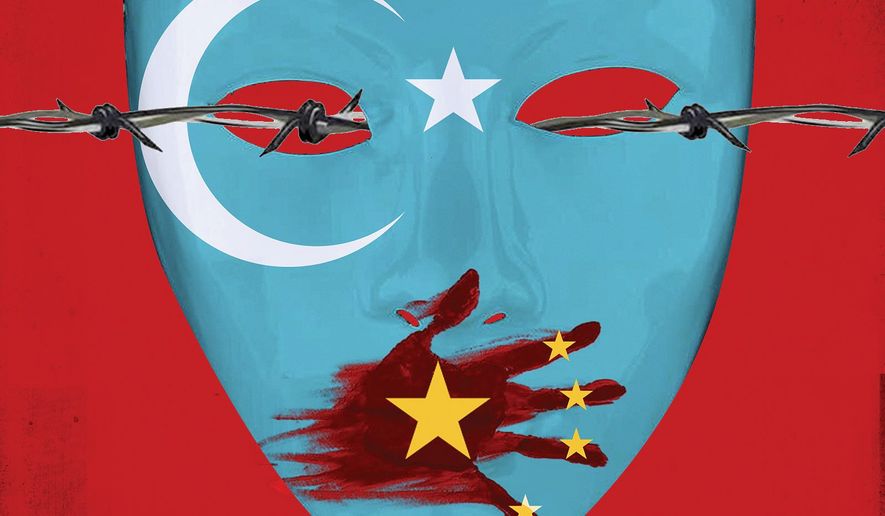OPINION:
Gulbuhar Hatiwaji was living in France when she received a call from her former employer. They had a request for her — that she return to China to apply for early retirement. Gulbuhar was puzzled by the request, but she went back to her hometown, Urumchi, planning on a two-week visit. She would be held in China for three years.
Gulbuhar has become one of the many faces of the ongoing Uighur genocide in a region called Xinjiang, where a people known as Uighurs have lived for thousands of years. Uighurs, a predominantly Muslim people, have been the target of the Chinese government for decades, who ruthlessly carry out campaigns of repression to keep the area colonized under Chinese rule. Tragically in recent years, these repressive campaigns have only escalated, becoming far more aggressive.
Upon her return to Urumchi, Gulbuhar was confronted by Chinese police. They showed her images of her daughter at a protest in Paris, and claimed she was the mother of a terrorist. They also accused her husband of being a terrorist. These baseless allegations were enough to ship Gulbuhar to prison, where conditions were horrific.
In her own words: “All the women were shackled … the cells were designed for nine to ten women, but there were up to forty of us there.” She was singled out for particular abuse and punishment. Prison guards chained her to the bed for 20 days. When she asked for an explanation, desperate to know why she was being put through this, she was simply told that the orders were coming from “higher up”.
Eventually she was transferred to an “education center” — a misnomer used to describe the network of concentration camps in Xinjiang where the Chinese Communist Party seeks to superimpose its own ideology while simultaneously erasing Uighur culture. Gulbuhar said “We were given no choice, we had to praise the party and say we were glad to be there.” The offenses that lead to internment is varied, but equally undeserving: the wearing of headscarves, associating with Uighurs abroad, or showing up on some blacklist previously unknown to them.
One of the most galling atrocities facing Uighur women in the camps is the Chinese Communist Party’s forced sterilization campaign. Multiple reports of women receiving shots leading to their infertility underscores the CCP’s ultimate aim: to eradicate the Uighur race. Every day more Uighurs are brought to these camps, where they face attacks on their faith, their culture, and their bodies. This genocidal war is an attempt to wipe out a people as an independent group, with horrors not seen on this massive scale since the Holocaust.
Gulbuhar is just one courageous survivor. Recent estimates suggest that millions of Uighurs are going in and out of these camps. By intertwining the ethnic identity of the Uighur people with attacks on Islam, the Chinese State’s fear of religion is on display. Gulbuhar’s story provides chilling evidence that the campaign against the Uighur people is not limited by the borders of China’s territory, as the CCP continues to draw in Uighurs living abroad.
Cases like that of Dr. Gulshan Abbas illustrate the Chinese regime’s willingness to retaliate against the family members of those who criticize its genocidal crimes. Gulshan disappeared after her sister, Uyghur American Founder and Executive Director of Campaign For Uyghurs Rushan Abbas, spoke out on the genocide. The sanctioning of myself (Amb. Brownback) and USCIRF Chairs Gayle Manchin and Tony Perkins demonstrate the contempt that the Chinese regime has for freedom of religion and thought, and to any effort to promote the values of a liberal democracy, including mutual respect, within a society.
We are encouraged that the international community is responding, as the governments of the United States, the United Kingdom, the Netherlands and Canada have all designated this event as a genocide. But we must do more. Survivors like Gulbuhar are the link between the rest of the world and the horrors facing Uighurs in their homeland. It is now our responsibility to listen to their story and stand up for their humanity.
Next month in Washington, D.C., we will be highlighting stories like Gulbuhar’s to hold a spotlight on international religious freedom, and the critical role it plays in maintaining a world that respects all faiths and ethnicities. A threat to the religious liberty of one people is a threat to the liberty of all. For this reason, the international community must continue to find opportunities to come together to highlight this important concept and fight for religious freedom for all. Standing united against intolerance, discrimination, and genocide is the only way to recognize the admirable goal of freedom of belief for all peoples.
• Sam Brownback formerly served as U.S. ambassador at large for international religious freedom. Rushan Abbas is founder and executive director of Campaign for Uyghurs.




Please read our comment policy before commenting.